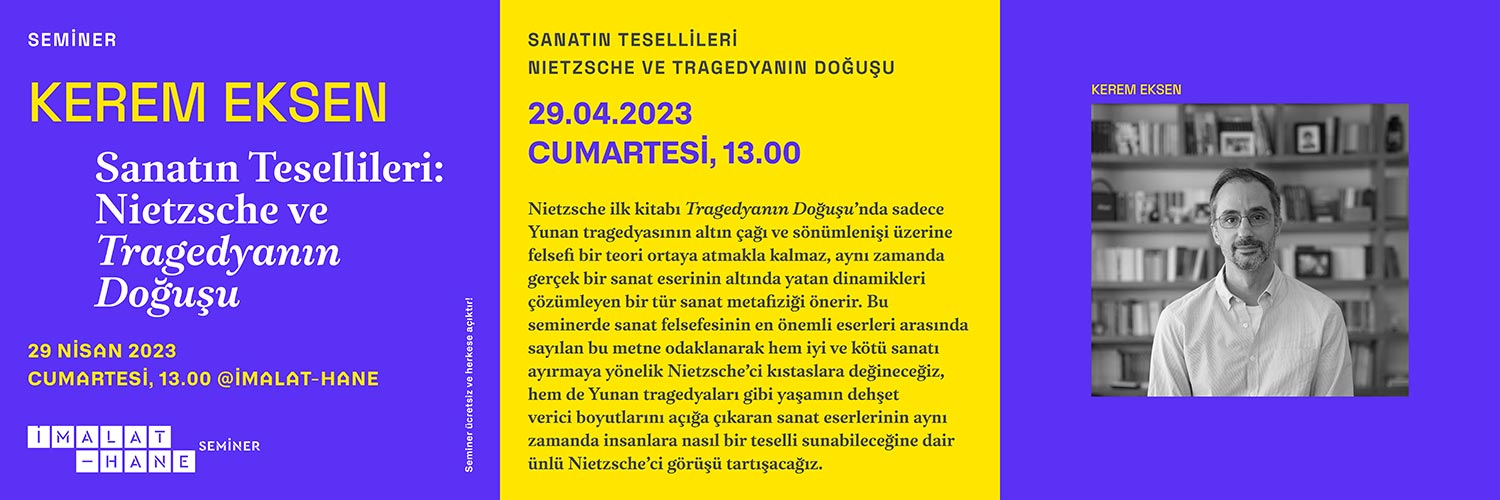In his first book, The Birth of Tragedy, Nietzsche proposes a philosophical theory of the golden age and the withering away of Greek tragedy and a kind of metaphysics of art that analyzes the underlying dynamics of an artwork. In this seminar, we will focus on this text, which is considered one of the most important works of the philosophy of art, and we will touch on the Nietzschean criteria for distinguishing good and bad art and discuss the famous Nietzschean perspective on works of art that reveal the terrifying dimensions of life, such as Greek tragedies, which can offer people consolation.
Kerem EKSEN completed his undergraduate education at Boğaziçi University at the Department of Sociology and his master’s degree at the Philosophy Department of the same university. He continued his doctoral studies at Boğaziçi and Paris 10 – Nanterre Universities and graduated in 2010 with his dissertation titled Tragic Error and Augustinian Ethics. Working as a faculty member at the Department of Humanities and Social Sciences at Istanbul Technical University since 2011, Eksen has written articles focusing on Friedrich Nietzsche, Michel Foucault, and Pierre Hadot, focusing on the fields of ethics and aesthetics and the intersections of these two fields in his academic activities, and translated texts from French and English. Contributing to publications such as Express, Bir+Bir, and K24 with his writings and translations, Eksen also has written three novels called Buradayız (Alef, 2013), Uyku Krallığı (Everest, 2017) and Ölümden Uzak Bir Yer.

Tuesday-Saturday:
11.00—19.00
Sunday: 12.00—18.00
Monday: Closed
